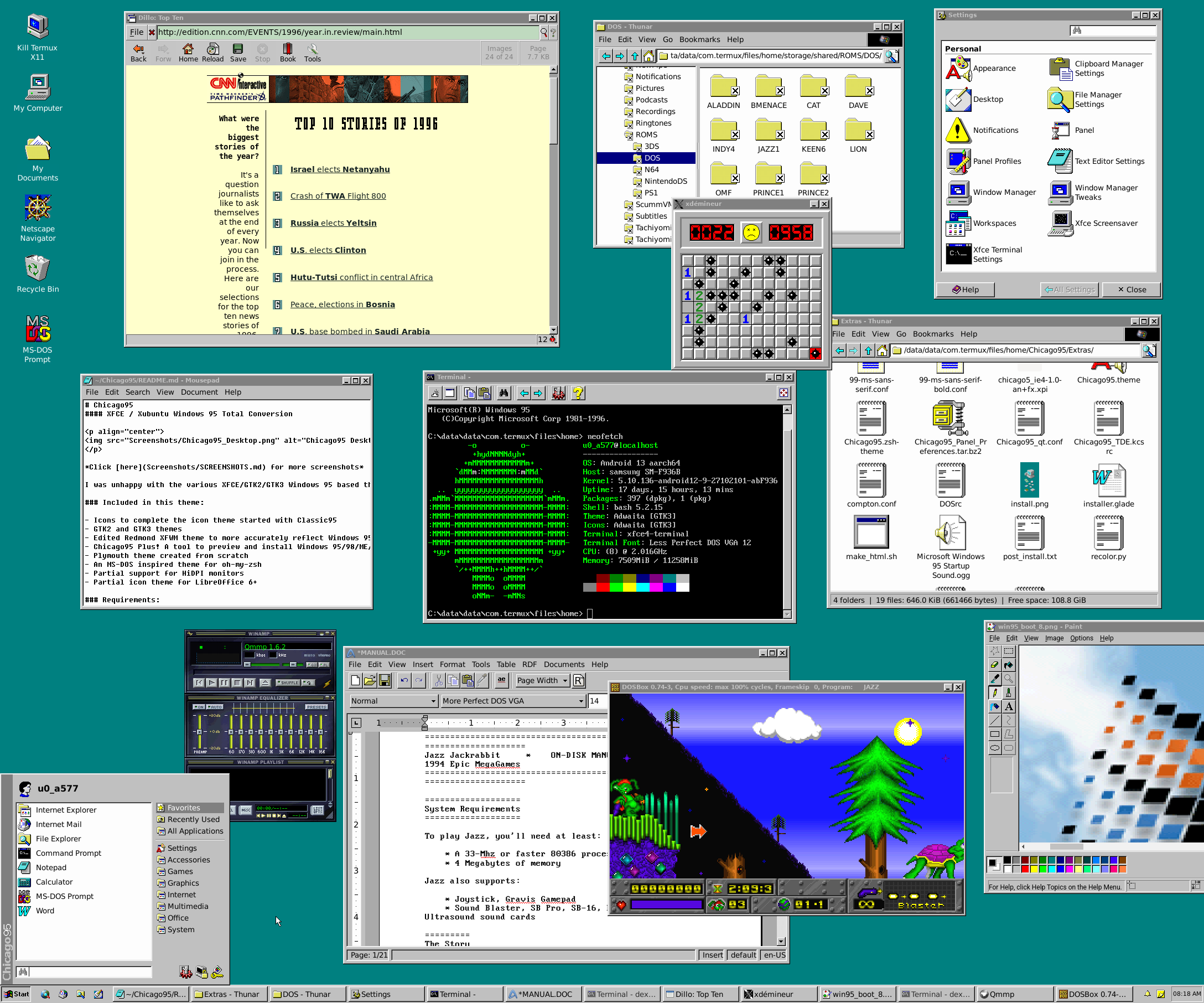I'm with you. In fact I'll say even retro operating systems were better (no bloat, no spyware, easy to understand/configure/mod/hack around), as well as retro Internet (no Javascript crap, no browser fingerprinting/tracking, simpler HTML, super easy webdev) and retro computing (no soldered-on components, PCs were more modular and easy to repair)... heck, planet earth in general was better back then. We've been on a downwards spiral since the 2000s. Everything sucks now.
d3Xt3r
As a retro enthusiast, I've been following this project for a while and it's been great seeing all the improvements over the years. I recommend checking out this video on its current state: https://youtube.com/watch?v=nWjAxNHXd_8
Equally, or possibly more interesting, is their Ladybird browser, which is cross-platform. Its been making great progress as well, and I sincerely hope that it can compete with the big two some day - would be nice to have a major browser/engine that's not based on Webkit or Gecko.
I wish 90s interfaces would make a comeback, I really miss the aesthetics of that era. Luckily there are some excellent themes out there that scratch that itch, like Chicago95 for XFCE - and here's bonus a screenshot of it running on my Galaxy Fold 4:

:)
You could make yours a Geocaching app with fog-of-war. They've got an API for third-party apps too, so it should be easy enough to develop, and actually fun to play.
If you're feeling ambitious, add some RTS elements like from Age of Empires - eg if you add someone as your ally, you can share their line of sight. Finding certain types of caches, or POIs, increases your resources (gold/stone/food/wood - maybe visiting Pizza Hut gives you extra food lol). And with these resources, you could build virtual structures like castles etc. Other players could spend resources to take it down (but they need to be physically at that location), and you could spend resources to defend your building.
Kinda like Ingress basically, but with medieval/RTS elements and geocaching thrown into the mix. How's that for a challenge? :)
You should check out Pinta then, I find it easier to use than Paint.net, yet reasonably feature-packed (obviously nowhere near GIMP/Photoshop).

That's going to change in the future with NPUs (neural processing units). They're already being bundled with both regular CPUs (such as the Ryzen 8000 series) and mobile SoCs (such as the Snapdragon 8 Gen 3). The NPU included with the the SD8Gen3 for instance can run models like Llama 2 - something an average desktop would normally struggle with. Now this is only the 7B model mind you, so it's a far cry from more powerful models like the 70B, but this will only improve in the future. Over the next few years, NPUs - and applications that take advantage of them - will be a completely normal thing, and it won't require a household's worth of energy. I mean, we're already seeing various applications of it, eg in smartphone cameras, photo editing apps, digital assistants etc. The next would be I guess autocorrect and word prediction, and I for one can't wait to ditch our current, crappy markov keyboards.
-
Summarising articles / extracting information / transforming it according to my needs. Everyone knows LLM-bssed summaries are great, but not many folks utilise them to their full extent. For instance, yesterday, Sony published a blog piece on how a bunch of games were discounted on the PlayStation store. This was like a really long list that I couldn't be bothered reading, so I asked ChatGPT to display just the genres that I'm interested in, and sort them according to popularity. Another example is parsing changelogs for software releases, sometimes some of them are really long (and not sorted properly - maybe just a dump of commit messages), so I'd ask it to summarise the changes, maybe only show me new feature additions, or any breaking changes etc.
-
Translations. I find ChatGPT excellent at translating Asian languages - expecially all the esoteric terms used in badly-translated Chinese webcomics. I feed in the pinyin word and provide context, and ChatGPT tells me what it means in that context, and also provides alternate translations. This is a 100 times better than just using Google Translate or whatever dumb dictionary-based translator, because context is everything in Asian languages.
Bear necessities you say? All that a modern bear needs is a pic-a-nic basket and a trusty sidekick.
It's not in the opposite order, it's just flipped around in the photo lol.
If it's just for personal use, why not just use Tasker? Judging by what you've written, it could be easily done without needing any Android coding experience.

Nope. https://reactos.org/wiki/Missing_ReactOS_Functionality